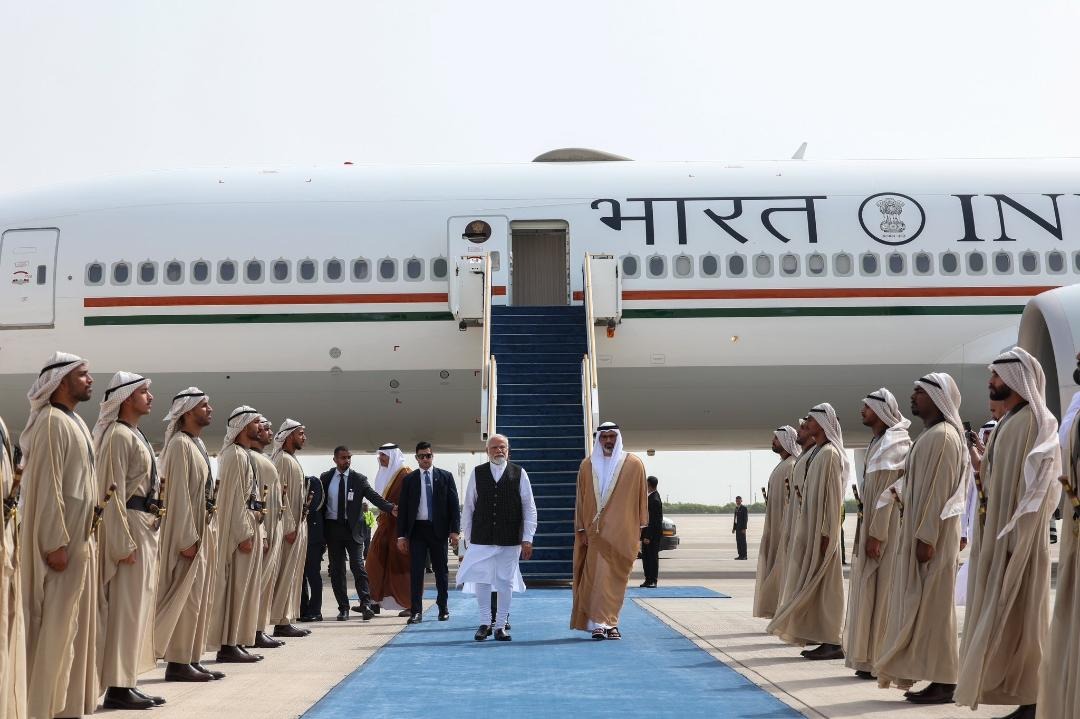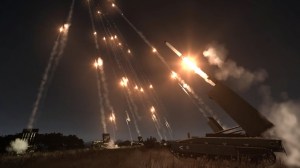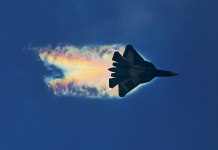OPED by Colonel Rajeev Agarwal
India’s Prime Minister Narendra Modi is on a two-day visit to UAE to attend the COP-28 Climate Summit and will be in Dubai on November 30 and December 1. Coming only a few months after his last visit to the UAE in July, this would be his sixth visit to the country since his first visit in August 2015.
The 2015 visit to UAE was the first by an Indian PM in 34 years. In this short duration of eight years, the bilateral relationship has catapulted to unprecedented levels of engagement.
The UAE was the first country in the region with which India decided to elevate the ties to a comprehensive strategic partnership during Modi’s visit in August 2015. The personal chemistry and close rapport between President Sheikh Mohammed bin Zayed Al Nahyan (MBZ) and PM Modi is a crucial factor in the rapid development of this close partnership.
Both leaders share a common perspective of critical issues impacting the region and the vital role that the two countries can play towards development and prosperity in the region.
Bilateral trade grew to US$85 billion in 2022-23, making the UAE India’s third-largest trading partner. The UAE is also India’s second-largest export destination. The UAE is also the fourth-largest overall investor in India.
The landmark Comprehensive Economic Partnership Agreement (CEPA), signed on February 18, 2022, in a record time of 88 days, is another example of mutual trust and a unique bilateral relationship. CEPA aims to increase employment opportunities and bilateral trade in goods to US$100 billion in five years and trade in services up to US$15 billion.

The COP-28 Summit is an essential priority for India and personally to PM Modi. India has been at the forefront of various initiatives towards climate preservation. Even during its just concluded G20 presidency, India gave the subject of climate preservation a top priority.
India’s emphasis on LIFE (Lifestyle for Environment) and climate preservation and getting the G20 nations to agree on a ‘just transition’ to save the planet was one of the highlights of the ‘Delhi Declaration.’
The joint declaration aptly stated, ‘Just energy transitions can improve jobs and livelihoods and strengthen economic resilience. We affirm that no country should have to choose between fighting poverty and fighting for our planet.’
India has lived up to its commitment by exceeding its renewable energy target nine years ahead of the 2030 target set at the 2015 Paris Climate Summit. India pledged that 40% of its power capacity would be met by non-fossil fuels by 2030, a target fulfilled in December 2021.
In addition, India’s global initiative promoting renewable energy, like the International Solar Alliance, set up in 2015, now has over 100 countries as members. The Global Bio Fuels Alliance, announced recently during the Delhi Summit of G20, is a significant step towards preserving Earth’s climate.
Another Indian initiative, setting up the Coalition for Disaster Resilience so that countries worldwide, especially developing countries, learn from each other and build resilient infrastructure even during disasters, has been acknowledged and applauded.
Indian Ambassador to UAE, Sanjay Sudhir, speaking on the eve of the Summit, said that climate preservation has been a priority and New Delhi has always walked the talk on the issue of climate change.

This COP-28 Summit, however, comes against the backdrop of a raging conflict in the region, the Israel-Hamas war. The war, which was unleashed on the area when Hamas carried out a surprise terror attack from Gaza into Israel on October 7, is now almost two months old.
The war has taken a heavy toll on human lives, with more than 15,000 dead, mostly civilians in Gaza, over 2 million displaced, and the entire population of Gaza facing a very severe humanitarian crisis.
The ceasefire agreed upon between the two warring parties for the exchange of prisoners and hostages came into effect on November 24 and is holding good with the hope that it could be further extended to culminate in the end of this conflict in Gaza.
As in the ongoing Russia-Ukraine conflict, the world is looking to India for leadership and vision for a peaceful resolution. PM Modi’s words in the context of the Russia-Ukraine war, stating, ‘Today’s era is not an era of war,’ echoes even today and is relevant to this Israel-Hamas war too.
India was prompt to call out and condemn the terror attack by Hamas on October 7 but has also been equally clear and firm on its support for a just and viable solution for an independent State of Palestine.
It has also repeatedly stated that humanitarian values need to be respected and civilian casualties minimized, a direct reference to Israel’s punitive strikes causing mass civilian casualties.
In a way, therefore, India has presented a well-balanced posture on the issue. With Modi enjoying good personal rapport with PM Netanyahu and Palestine Authority President Mahmud Abbas and several other regional leaders, calls for India to take the lead and end the war are growing louder by the day.
The Arab Islamic Committee, consisting of Ministers from the Arab world on a global tour to garner support for a ceasefire, held its meeting in New Delhi on November 28 and again requested India to take the lead in ensuring a permanent ceasefire.
PM Modi’s message on International Day of Solidarity with Palestine, on November 29, echoed consistent and committed support towards the Palestinian cause.
UAE is an essential country in the war in Gaza. It is one of the region’s significant political and economic powers and a vital member of the Gulf Cooperation Council, Arab League, and Organization of Islamic Countries.
It is one of the few signatories of the Abraham Accords with Israel and was generally restrained in its condemnation of Israel in the ongoing conflict, especially in the initial period of the conflict.
It is also a signatory with India and Israel in I2U2, comprising India, Israel, the US, and the UAE. It is a crucial player in the recently announced India-Middle East-Europe Corridor infrastructure project from India to Europe through West Asia and Israel.
UAE thus provides India and PM Modi the ideal platform to try and persuade warring parties towards a lasting truce. With the US, Egypt, and Qatar actively working at the forefront in negotiations, India could play the ideal foil to provide the silent but strong push toward peace.
PM Modi is not known to take singular visits abroad. This time, too, based on developing circumstances, a quick stop-over in Riyadh or Cairo cannot be ruled out. India, which led the world during the COVID-19 pandemic, provided agenda and vision to the world during its just concluded G20 presidency through its slogan of ‘One Earth, One Family, One Future,’ could once again provide the ‘silent push’ to end the bloody conflict in Gaza.
- Colonel Rajeev Agarwal (Retired) is an assistant director at the Manohar Parrikar Institute for Defence Studies & Analyses (IDSA), a former director at the Ministry of External Affairs & Military Intelligence, and a former research fellow at IDSA. Views Personal.
- Mail EurAsian Times at etdesk(at)eurasiantimes.com
- Follow EurAsian Times on Google News




